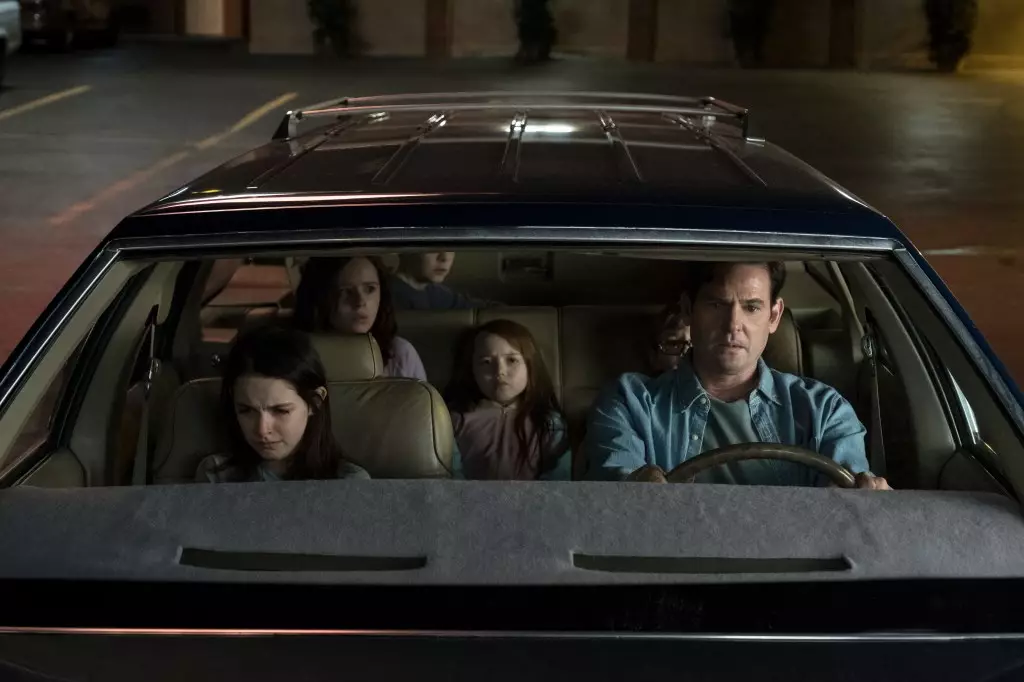In a world often shrouded in silence around mental health and personal loss, few have the bravery to share their struggles openly. Mike Flanagan, the visionary director behind acclaimed horror masterpieces, has bravely chosen to illuminate his path, revealing how his artistic endeavors serve not only as sources of entertainment but also crucial mechanisms for personal healing. Speaking at SXSW London prior to the debut of his compelling new film, *The Life of Chuck*, Flanagan openly discussed the profound impact that grief and trauma have had on both his life and work. His journey resonates deeply, as he candidly connects the haunting narrative of *The Haunting of Hill House*—an exploration of loss and despair—to his own experiences with suicide within his family.
Grief can sometimes feel like a heavy shroud that clouds one’s creativity; however, Flanagan has wielded his pain as a sword of expression. “My nightmares and dreams bled into the work,” he revealed, shedding light on how transformative artistic outlets offer an escape and a catharsis for those wrestling with emotional ghosts. His poignant reflections challenge the notion that horror is solely concerned with scares, as he skillfully intertwines intimate emotional truths with supernatural elements.
Breaking Ground on an Undervalued Genre
Flanagan’s work comes at a pivotal moment when the cinematic landscape is grappling with the stigma surrounding horror. Throughout his career, Flanagan has been a vocal advocate for horror’s legitimacy, battling the persistent “bias against horror.” This bias, as he asserts, hinges on a misconception that good storytelling is incompatible with the genre. With cinematic triumphs like *Get Out* reshaping perceptions, he stresses the need for critics and audiences alike to recognize horror’s inherent potential for profound narratives.
“We have a lovely demand now for genuine stories within horror,” Flanagan noted, highlighting how it’s not merely a parade of jump scares but rather a rich tapestry woven with emotional depth and complexity. Yet, despite these advancements, the cycle of surprise remains endemic. Flanagan’s frustration is palpable: every time an acclaimed horror film breaks through, the industry seems to reset, suggesting that a good story cannot possibly thrive within this genre. The fight for recognition persists, and Flanagan stands committed to redefining horror.
Deconstructing the Horror Auteur
Central to Flanagan’s ethos is his recognition of the narrative potential in horror, particularly in his collaborations with legendary author Stephen King. Far from being confined to the genre’s typical tropes of violence and fear, Flanagan has come to regard King as a profoundly humanistic storyteller whose work delves into profound elements of the human condition. “It’s about kids and friendship,” he simplifies, thus shattering the preconceived notion that horror only serves to terrify. In doing so, Flanagan exemplifies how the fusion of human emotions and chilling narratives can lead to something greater—an exploration of what it means to be human.
His impassioned insistence on preserving the art of monologue in film similarly spotlights his belief in the power of language. As streaming services dominate content creation, the art of rich dialogue risks being overshadowed by rapid pacing and flashy visuals. Flanagan stands at the forefront, advocating for monologues as not just devices of storytelling, but as avenues for profound emotional connections. “Nothing is more impressive than watching an actor weave reality through their words,” he stated, urging creators to value these moments that cultivate deeper engagement and reflection from audiences.
A Personal Odyssey and Collective Healing
Ultimately, Flanagan’s personal story interlaces with the collective experience of loss and vulnerability. His films reflect not only his own grappling with grief but also serve as a mirror for audiences navigating their own struggles. In sharing his journey, Flanagan fosters a deeper understanding of the human experience, challenging us to confront our fears while finding beauty in our shared pain. Horror, as Flanagan champions, is not merely about the phantoms that haunt us but about the scars we bear and the healing that can arise through storytelling.
As both an artist and a survivor, Flanagan’s work transcends entertainment; it invites viewers to explore their own grief through the lenses of fiction. By bravely connecting his life’s narrative with the genre’s capacity for deep storytelling, Flanagan offers us not just a response to horror but also a roadmap for understanding and processing the complexities of being human. His cinematic contributions illustrate that, indeed, there is a pathway to healing embedded within the shadows of fear.


Leave a Reply